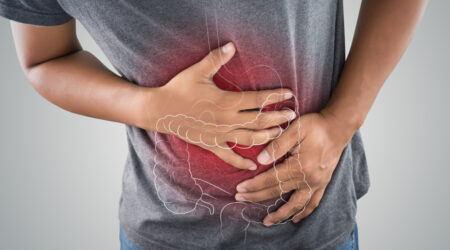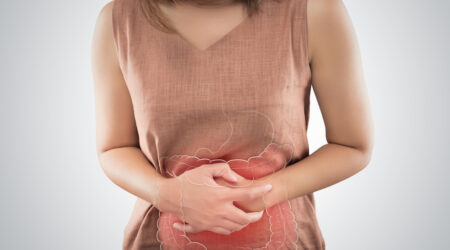Do You Have These Milk Intolerance Symptoms?
Milk intolerance is a condition where the body is not able to easily digest the natural sugar that is found in milk leading to several gastrointestinal problems on the consumption of milk or any other dairy products. Watch out for these milk intolerance symptoms so you can avoid the inconvenience.
Inability to digest lactose is medically termed as lactose or milk intolerance. Milk intolerance is a condition that is caused by the deficiency of the intestinal enzyme called lactase, which splits lactose into two sugars called glucose and galactose.

Lactase deficiency is caused in the body due to a certain mutation in the gene that is responsible for the production of lactase. This condition is also referred to as a congenital cause of milk intolerance. Secondary causes of milk intolerance include damaged lining of the small intestine and developmental lactose intolerance, which is a gradual genetically programmed decrease in the amount of lactase produced from the patient’s childhood itself. This decrease continues through adulthood, and is categorized as adult-type hypolactasia.
The severity of milk intolerance varies depending on the amount of lactose that has been consumed by the patient. It has been clinically proven that it takes from 30 minutes to an hour for the milk intolerance symptoms to surface after the consumption of any dairy products. The following are certain prominent milk intolerance symptoms that need to be paid attention to in order to seek treatment in good time:
- Diarrhea
Milk intolerance symptoms such as diarrhea appear in the early stages of the reaction. Since the body is unable to break down the sugars and digest lactose, it causes problems with the digestive system that leads to diarrhea on consumption of any dairy products like milk, cheese, etc. Sometimes the stool passed is very foamy in this condition.
- Cramps in the stomach
Pain in the stomach and bloating of the belly area is one of the most common milk intolerance symptoms observed. In this case, the patient experiences severe cramps that worsen with time, if the consumption of milk products is continued. The patient may also have a bloated belly as the body finds it difficult to break the lactose down from sugar.
- Flatulence
This milk intolerance symptom is the result of excessive accumulation of gas in the alimentary canal which is again a result of the troubled digestive system in lactose intolerant patients. Flatulence can be understood as the medical term to release accumulated gases out of the system through the anal cavity.
- Nausea and vomiting
When you consume milk products that your body does not have the capacity to digest, your body goes into fight mode and becomes intent on flushing out the items that it cannot digest. This results in another one of the common milk intolerance symptoms – nausea and vomiting.
At times, it may be confusing as to whether a particular symptom is being caused by an intolerance to milk and other dairy products or because of some other problem altogether. The best way to check if the patient is actually milk intolerant or not is to see if the symptoms still persist after the consumption of any milk products. You may display mild milk intolerance symptoms in the case of minor deficiencies in the body, and sometimes, there may be no visible and tangible milk intolerance symptoms at all. Although there is no way to improve the production of lactose in the patients affected with lactose deficiency, milk intolerance symptoms can be treated with due medication and by following a proper diet that does not contain any milk, butter, yogurt, cheese or any other dairy products in it.
While the milk intolerance symptoms go away once you stop consuming milk and dairy products, most patients face the problem of not getting enough calcium from their dairy-free diet. Calcium is needed for the good health of your bones. Even though you have to stay away from milk and its products, you have to ensure that you are either taking calcium supplements or adding calcium to your diet through other means.



